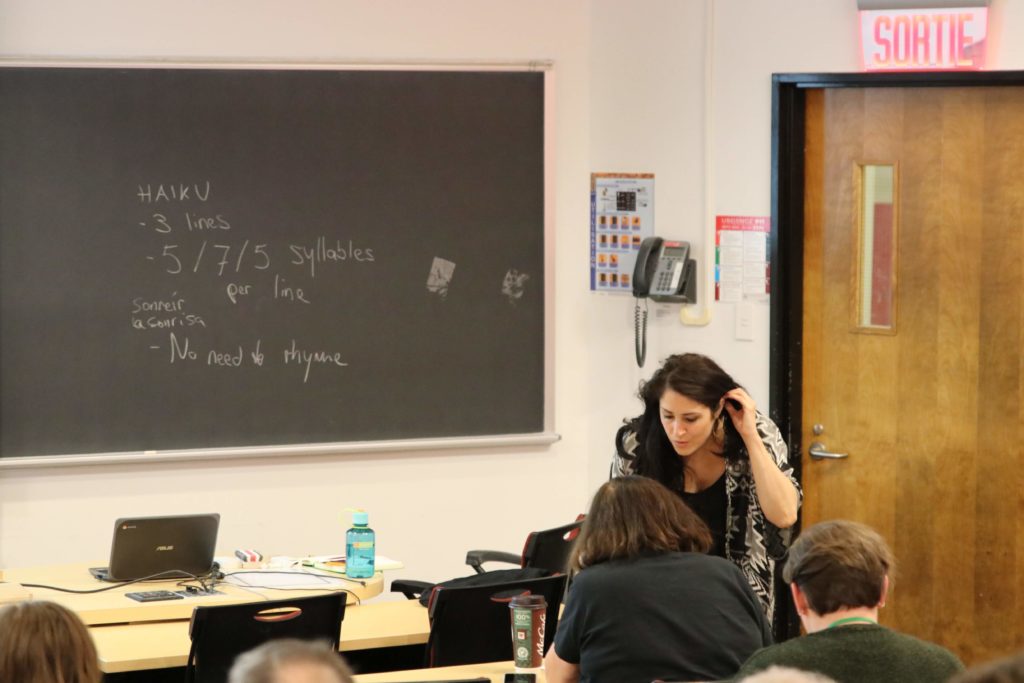
“There are no foreign languages, there are onlylanguages I can’t communicate in (...yet)”.
This sentence summarizes the two weeks I spent in Montréal to attend LangFest 2019. What a conference! It was a celebration of one of the best forms of communication known to man: languages. It was a language lovers delight!
It has been probably the first time in my life when I felt English is not the “default” language.
It was such a pleasure to overhear groups of people talking in several languages, from Latin, ancient Greek, modern greek, to all the common languages, and what’s best, the not so common ones did also come at play.
It was so refreshing to be addressed in my mother language! I wasn’t aware how much I resented having to be the one communicating in the country native language (which is in my case tend to be English) all the time and how, that lack of reciprocity made me feel sad (I speak your language, but you don’t speak mine).
And I was pondering about this newly discovered “resentment”. I believe one must learn the language of the country one chooses to live (or has to live) but it’s nice when the other party acknowledges your effort AND existence with all your differences and identity.
That’s why the sentence “there are no foreign languages, there are only languages I can’t communicate in” hit my heart so deeply when I heard it during LangFest (I think it was in the opening speech…).
I guess that’s one of the reasons I loved my experience of Montréal in combination with LangFest. I tried to use my French (which was rustier than I thought and refused to come out when required) but when my interlocutor felt my struggle, there was always a fall back to “Spanish”?! or at least the question of what other languages you want to speak to? I was addressed in Portuguese and Italian… There was not an immediate fall back to English as a common language. There was no assumption or expectation or even annoyance at my difficulty to speak in the “official” language.
Languages are, after all, a tool for connection and should never be used to create a wall.
This was enhanced by the three days in LangFest world. I spoke more Spanish than I expected and loved that willingness in using languages for a purpose beyond communication. The words sought connection.
Highlights of LangFest 2019
- One of my favourite talks was the one delivered by BigBong (Bong Sou) and Mark Hachem called “Parler une culture: Acting a language” because it was all about the understanding that a language is so much more than words. They talked about culture and the impact of acting when it comes to learning a language.
- My second favourite was two-fold: the workshops about Dothraki and Klingon languages delivered by the creators, David Peterson and Marc Okrand, themselves. As a, somewhat new, Star Trek fan, learning more about Klingon language was highly interesting and even more so when one of the words my partner and I use often is quapla’ to wish each other success.
- My successful LangFest experience was completed with the workshop I delivered with my colleague Kerstin Cable. We combined creative writing, poetry in particular, with performance and public speaking. What a pleasure it was to listen to the participants read their creations! You can listen to some of those in Kerstin’s podcast.
Teaching languages through Poetry or Creative Writing is my everyday occurrence, so I wasn’t surprised that the attendees delivered poems that moved us: trilingual poems, visual poems, poems in sign language, a song! I am used to witnessing people saying they are not creative or have never written a poem, become moving poets for the occasion.
I wasn’t surprised, but I was moved, again, and as usual. I had to hold off my tears as I was listening to one of the poems.

I have talked extensively about the use of poetry in language learning. One of the latest instances has been in Kerstin Podcast, How to Play with a Language you Love.
Having had organised several workshops and online courses around poetry in the target language, particularly in Spanish learning, I find fascinating how learning deepens and integrates when we involve emotion and introspection.
I feel honoured to witness again and again the soul and unbridled creativity that expresses itself when one provides a safe space and some guidance. Finally, my PhD in Spanish Literature comes in handy!
My purpose is just this, to provide a safe space, encouragement and guidance so you can reconnect with your polyglot creative self.
A sweet, sweet job.


